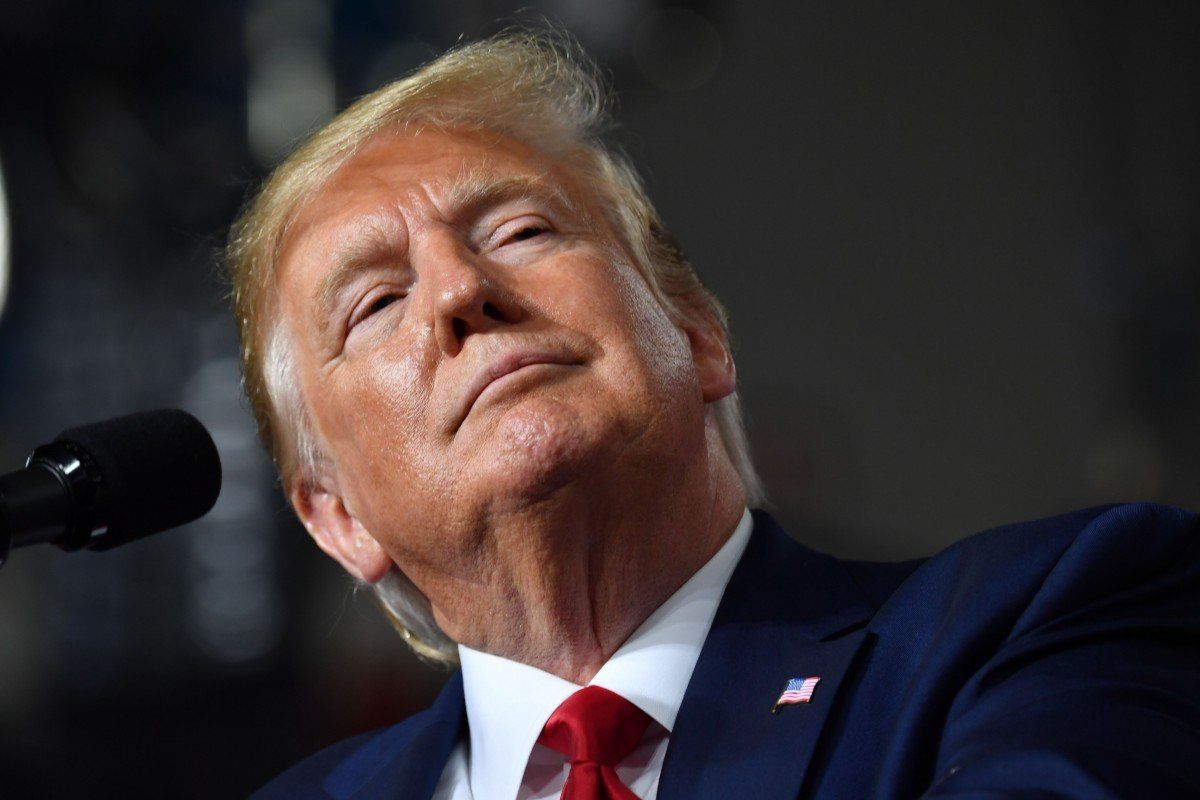Trump denies lifting tariffs on China

A few minutes every morning is all you need.
Stay up to date on the world's Headlines and Human Stories. It's fun, it's factual, it's fluff-free.
President Trump said on Friday, November 8, that he had not agreed to lift trade tariffs on Chinese goods. Officials from the US and China had previously suggested that an agreement was in place to remove some tariffs as part of a “phase one” trade deal.
However, Trump denied earlier indications of a deal. His remarks dampen hopes that the world’s two largest economies will end the trade war that has contributed to slow global growth.
What did President Trump say?
Earlier reports suggested that the US and China were close to agreeing on a “phase one” trade deal, which would remove tariffs on both US and Chinese products. During an interview in front of the White House, Trump told reporters there was no agreement. “They’d like to have a rollback… not a complete rollback because they know I won’t do it. I haven’t agreed to anything.”
The president also said that China wanted to make a deal more than he did. According to Trump, the tariffs benefit the US economy and generate “billions of dollars."
Trump said the signing of any future trade deal between the US and China would take place “in our country." He added that Iowa, a swing state that continues to support Trump despite the impeachment inquiry, or “somewhere in farm country” would be the preferred location.
Initial hopes for an agreement
Earlier this month, Trump stated that the US and China had reached a consensus on terms for a “phase one" agreement. He added that the two countries could sign an agreement within weeks.
Later, on Thursday, November 7, officials from the two sides again suggested that an agreement was in place. Mirroring the president’s earlier comments, representatives from both countries said they had agreed to roll back tariffs on each other’s goods as part of a “phase one” trade agreement.
“In the past two weeks, top negotiators had serious, constructive discussions and agreed to remove the additional tariffs in phases as progress is made on the agreement,” Gao Feng, a Chinese government spokesperson, said. “If China, US, reach a phase-one deal, both sides should roll back existing additional tariffs in the same proportion simultaneously.”
US officials corroborated the Chinese announcement.
Speaking to Bloomberg News, Larry Kudlow, the chairman of the White House’s National Economic Council, said: “if there’s a Phase 1 trade deal, there are going to be tariff agreements and concessions.”
The apparent easing of tensions between the US and China prompted the International Monetary Fund (IMF) to say that it could revise forecasts for global growth next year. The current tensions have led the IMF to project 2019 global growth at 3%, down from 3.2% in July, before the introduction of the tariffs.
[article_ad]
A divided White House
According to the New York Times, Trump’s comments reflect the difference of opinion in the White House about giving China concessions.
Hawkish members of the Trump administration urged the president to avoid relaxing tariffs unless China commits to “significant concessions that have so far proved elusive.”
But other presidential advisers warned that the tariffs are “inflicting pain on farmers and manufacturers” and could cause political damage in an election year. Analysts say the removal of tariffs depends on China meeting requirements.
If China meets certain benchmarks, opens its markets to foreign firms, and purchases billions of dollars of agricultural products from the US, the US would remove tariffs in turn. They also add that the removal of tariffs is conditional on China showing a commitment to respecting American intellectual property.
Politico reported the White House made a conscious decision not to deny the November 7 reports about an agreement due to their favorable nature.
The US-China trade war
The US and China are the world’s two largest economies. The trade war between them, which began in 2018, is still ongoing. Trump initially accused China of unfair trading practices and intellectual property theft and consequently imposed the tariffs. The goal was to force China to make changes to what the US claims are “unfair trade practices."
Meanwhile, in China, there is a perception that the US is trying to curb its rise as the dominant economic power. The US imposed tariffs on $250 billion worth of Chinese products. In retaliation, China put tariffs on $110 billion of American goods.
The two countries have taken part in negotiations to try to end the trade war, but negotiations have proved difficult. CNBC reports that negotiations have reached a stalemate, following repeated breakdowns in talks.
UN economists have warned that the trade war is a ‘lose-lose’ situation for the US and for China, along with the rest of the world. The Chinese economy has also suffered because of the trade war. In the first three months of 2019, the Chinese economy grew at its slowest pace since 1993.
According to PBS, the American farming industry faces difficulties because of China’s retaliation to US tariffs. China is the biggest buyer of American agricultural goods, and a PBS survey of over 80% of farmers in Iowa, Illinois, and Minnesota showed that the trade war affected their livelihoods.
Alongside the trade war with China, Trump has also imposed tariffs on goods from Mexico, Canada, and the European Union in order to encourage consumers to buy American products. All of these countries responded by placing tariffs of their own on US goods.
[article_ad]




Comments ()